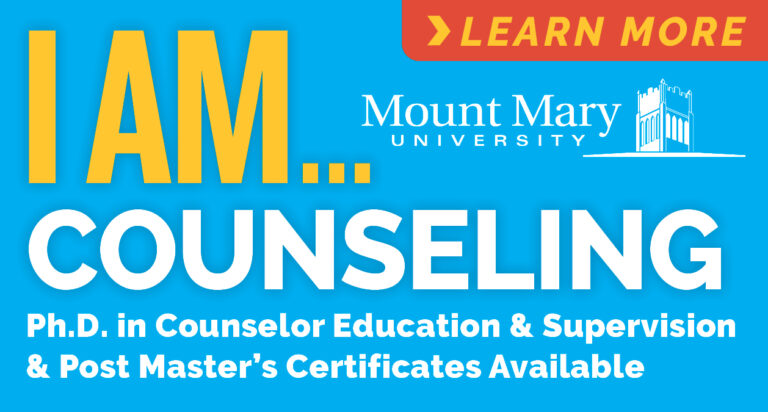February 19, 2013
Full Day Preconference Workshops
Bill Symonds, Author, Director, Pathways to Prosperity
Dr. James R. Stone III, Director, National Research Center for Career and Technical Education Research, University of Louisville, Louisville, KY
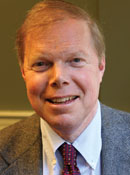 |
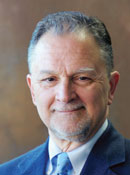 |
“College and Career Readiness: School Counselors Answering the Call” (Pre-K – Gr. 12)
The College and Career Readiness movement is beginning to define educational reform. Clearly the impact on our schools is significant. Conversations are happening at the national, state, and local levels about how the PK-16 educational system can play a larger role in addressing an impending workforce crisis. As administrators are beginning to seek ways to address this issue, school counselors can find themselves uniquely positioned to play a central role in developing reform, and we must act on this opportunity!
WSCA is excited to have Bill Symonds (author of the Pathways to Prosperity report) and Dr. James R. Stone III, Director of the National Research Center for Career and Technical Education, as well as other recognized national experts on the heart of the career development issue in the morning, and in the afternoon, proven initiatives that have been effective in addressing ways to engage students in meaningful career development prior to graduation from high school.
Bill Symonds is the Director of the Pathways to Prosperity Project, which is based at the Harvard Graduate School of Education. The Pathways Project was created in 2008 to find promising solutions to our national failure to prepare may young adults for success. Bill Symonds helped create the Pathways Project while he was a senior fellow at Harvard’s John F. Kennedy School of Government in 2007-08. Prior to that, he spent nearly 25 years as a senior correspondent and bureau chief for Business Week Magazine. In addition to covering business in the U.S. and abroad, Bill served as Business Week’s chief education correspondent for many years, and wrote exclusively about the role of U.S. business in school reform.
Dr. Stone is a native of Washington D.C. He has held faculty positions at the University of Wisconsin – Madison and the University of Minnesota. He currently is a Distinguished University Professor in the College of Education and Human Development at the University of Louisville. Dr. Stone has maintained an active program of research for over the past 20 years.
Please join Bill and Jim in this exciting workshop!
Dr. Sylinda Gilchrist Banks
Assistant Professor – Counselor Education Program, Norfolk State University
Norfolk, VA
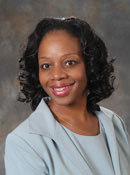 |
“Using Reality Therapy to Enhance Student Achievement”
This interactive workshop explores strategies to help students make wise choices, take control over their lives and make connections to build successful relationships. Participants will learn how to teach students to take responsibility for their behavior using Choice Theory/Reality Therapy principles. Participants will complete several experiential activities. Discover how to teach students the process of self-evaluation and goal setting to help them be successful. Learn how choice theory/reality therapy strategies can be implemented in an individual and/or group counseling session. Participants will learn how to teach these strategies to students, teachers, and parents!
Sylinda Gilchrist Banks, Ed.D., is an assistant professor in the counselor education program at Norfolk State University in Norfolk, Virginia. She earned her bachelor’s and master’s degrees from George Mason University, and her doctoral degree from George Washington University. After several years as a mental health therapist, Sylinda became a special education teacher. She also served as a high school counselor for over 6 years, as well as a school counseling director at an alternative high school. Before becoming a counselor educator, Sylinda served as the School Counseling Specialist at the Virginia Department of Education. While working at the Virginia Department of Education, she developed an accountability model entitled S.O.A.R.I.N.G to assist school counselors with program development and accountability. She is certified in Choice Theory/Reality therapy and is an instructor for the William Glasser Institute. Her publications include a resource guide entitled, Choice Theory: Using Choice Theory and Reality Therapy to Enhance Student Achievement and Responsibility, also she co-authored The Virginia Professional School Counseling Manual, as well as numerous articles. She has conducted over 70 workshops locally, regionally, and nationally on program development, accountability, self-care, effective communication skills, and choice theory and reality therapy. Sylinda is serving as the President of the American School Counselor Association.
Dr. Carolyn Stone
Author, Professor of Counselor Educator
University of North Florida
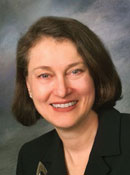 |
“School Counselors: Negotiating the Legal and Ethical Complications of Working with Minors in Schools “
The school environment poses competing interests between a student’s need for confidentiality and the legal rights of parents as established by the U.S. Supreme Court to be the guiding voice in their children lives in value-laden issues. Participants will develop an ethical decision making framework for analyzing and resolving ethical issues through the application of ASCA ethical codes, case and statutory law, school board rules, and community standards. Through small group and large group discussion of 40 case studies, participants will be given the opportunity to increase their understanding of the complexities of respecting a minor’s right to confidentiality, to develop a sensitivity to the need to consider their actions in context of each situation for each individual student, and to understand the rights of parents. Topics of discussion will include areas such as confidentiality and duty to warn, minors’ rights to privacy, counselors’ responsibilities toward suicidal children, civil and criminal liability, sexually active minor clients, birth control, abortion counseling, defamation, child abuse, HIV positive students, case notes and educational records, malpractice in academic advising, sexual harassment, the Hatch Amendment and guidance curriculum, and personal conduct.
Carolyn Stone is a Professor of Counselor Educator at the University of North Florida where she teaches and researches in the area of school counselors and accountability and legal and ethical issues. Prior to becoming a counselor educator in 1995, Carolyn spent 22 years with the Duval County Public Schools in Jacksonville, Florida where she served as a middle school teacher, elementary and high school counselor and Supervisor of Guidance for 225 counselors. Carolyn was the 2006 President of the American School Counselor Association, and is in her eighth year as their Ethics Co-Chair. She was awarded the Mary Gerke Lifetime Achievement Award by ASCA in 2010. Carolyn is a past President of the Florida Counseling Association and the Florida Association of Counselor Educators and Supervisors. Carolyn has delivered over 400 workshops in 49 states and 16 countries. She has authored three books, dozens of journal articles and serves the courts as an expert witness. Her professional path in elementary and high school counseling, middle school teaching, Supervisor of Guidance for the nation’s seventeenth largest school district, and counselor educator has prepared her with firsthand experience and understanding of the professional world of school counselors.
Half Day Preconference Workshops
February 19, 2013 1:30 – 5:00 pm
Mark Kuranz, WSCA Conference Co-Chair and Past Exhibitor Chair, Director of Professional Development, Past President and Trainer – ASCA, Adjunct Professor at Marquette University, Racine, Wisconsin
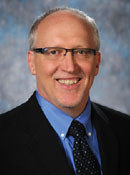 |
“R.A.M.P. – Recognized ASCA Model Programs” (Pre-K – Gr. 12)
RAMP up your school counseling program, and show your administrators, school board and the community at large that you are committed to delivering a comprehensive, data-driven school counseling program. If your program successfully answers the question, “How are students different as a result of what school counselors do?” then you are ready to show the world your program is “RAMPed up” by applying for Recognized ASCA Model Program (RAMP) status. This session guides you through the application requirements and process. You’ll gather tips and suggestions about how to approach the process and collect data and how to submit your school counseling program through the online submission portal. The RAMP accreditation is based on the “ASCA National Model: A Framework for School Counseling Programs,” third edition.
February 19, 2013
1:30 – 5:00 pm
Gary Campbell, WSCA Government Relations Chair, Professional School Counselor, Meyer Middle School, Member, River Falls Public School Education Foundation, Incorporated, Member – St. Croix Valley Restorative Justice Program, River Falls, WI
Michael Blumenfeld, WSCA Public Relations Advocate, Blumenfeld & Associates, Madison, WI
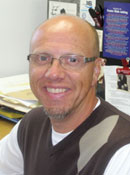 |
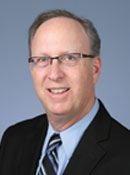 |
“WSCA 1st Annual Conference – Day on the Hill Event” (Pre-K – Post Secondary)
If you’re not at the table, you’re on the menu! It is time for WSCA to be setting the table. Traditionally the “Day on the Hill” event sponsored by WSCA has been held in March. With the annual conference now in Madison the opportunity to “Hit the Hill” is perfect. Attend this pre-conference to gain skills in advocacy for our organization, how to approach your state representatives and how to promote “OUR” profession as school counselors. Those in attendance will then head to the state capital where you will be able to meet with your local representatives and senators and become an ambassador for all of Wisconsin’s school counselors. This is your chance to build recognition of WSCA and help to build a “proactive” approach with our state leaders. Become a part of WSCA’s political voice and better establish and strengthen the school counseling profession here in Wisconsin. You will also get the opportunity to look at the positive direction and venture WSCA is taking. We see the need to build collaboration in Madison in today’s political climate. Part of that process is WSCA hiring a Public Relations Representative to be a contact point and lobby for our students in our schools and on behalf of the school counseling profession. WSCA is taking a strong venture into an area we have not actively been, the political arena. Come join us to be a part of WSCA’s goals of making school counseling a recognized and essential educational feature for students in Wisconsin. (Suggestions for participants: Time to show case what we do and what we bring to the profession! As we plan to visit our state leaders at the capitol as part of this pre-conference session, come prepared with stories, school projects, thank you notes you have received, other testimonials and items that you can share to show the impact we as school counselors make in our daily interactions with students. It will be a great time to show off what School Counseling is today and how we positively impact the students, families, teachers, staff of our schools and the communities we live in.)
February 19, 2013
1:30 – 5:00 pm
Dr. Mark Gillen,
Ph.D., NCC, LPC, LSC, Associate Professor, Department Chair – Counseling and School Psychology, Program Director – School Counseling Program, Counseling and School Psychology Department, University of Wisconsin – River Falls, River Falls, WI
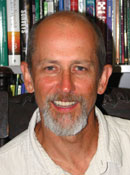 |
“Solution Focused Counseling in Schools — What to Do After the Miracle Question” (Pre-K – PS)
The focus of this presentation is to assist those familiar with Solution Focused Counseling (SFC) but interested in brushing up on their training, or going beyond the miracle question with their clients. Bring your client questions and concerns to this open discussion forum. The presentation will include the following:
• A brief review of the basics of Solution Focused Therapy (Counseling) and some exercises for the group to begin to integrate these basics into their work with clients (students, teachers, parents, stakeholders, etc.).
• Opportunity to evaluate the sessions (using video) and provide feedback on making sessions more solution oriented.
• Discussion of the blending of theory and techniques to improve skills for using SFC.
• Opportunities to work in triads to practice skills.
• Lots of references and take away resources.
Dr. Gillen trained at the Brief Family Therapy Center in Milwaukee with Eve Lipchik, one of the co-founders Solution Focused Therapy from 1987 to 1997. He has also written articles, and presented at state and national conferences on Solution Focused Counseling and its’ connection to school counseling.
February 19, 2013
1:30 – 5:00 pm
Angela Buchenauer, President and Past Professional Development Chair – WSCA, Professional Middle School Counselor, School District of Bonduel, Green Bay, WI
Cheryl Mitchell, Professional School Counselor, Preble High School, Green Bay, WI
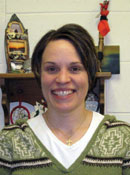 |
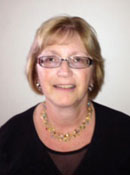 |
“Promoting Your School Counseling Program Using the SPARC-W” (Pre-K – Gr. 12)
Are you interested in creating a document that will showcase how your School Counseling Program makes a difference in your school? If your answer is yes, this sectional is for you! Spend the afternoon learning how to put together an award winning SPARC-W and have TIME to begin creating your own SPARC-W document. You will leave with a great start to all the components of the SPARC-W.
February 19, 2013
1:30 – 5:00 pm
Dr. Carrie King, LPC, NCC, WSCA WCA, Director, M.S. in Counseling Program & Assistant Professor, Mt. Mary College, Milwaukee, WI
Dr. Tammy Scheidegger, NCC, LPC, Assistant Professor and Practicum and Internship Program Coordinator, Mt. Mary College, Milwaukee, WI
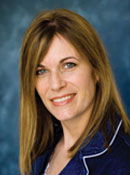 |
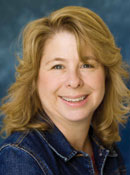 |
“Strategies for Compassionate Classroom in Trauma Sensitive Schools” (Pre-K – Gr. 12)
Often unidentified, we have students in our schools impacted by trauma – witness to domestic violence, car accident survivor, lost a loved one, physically / sexually abused, bullied by peers, etc. All aspects of development are impacted by trauma. It can interfere with learning, forming positive relationships, regulating emotions, controlling impulses, and overall functioning in the classroom. Some children exposed to trauma act out, while other students internalize their trauma and are driven toward perfectionism or are withdrawn from others. School personnel may misinterpret behavior and unknowingly trigger trauma responses. For student learning to occur, school environments must be perceived as emotionally and physically safe. Raising awareness to the rising number of students’ who need additional support and safety is a first step. Trauma-Informed Care Principles applied in schools create a supportive environment by developing positive relationships that help children utilize healthy coping strategies and learn to their potential. It is appropriate to note that the principles of Trauma-Informed Care complement the primary ideas behind PBIS and can be applied to schools implementing PBIS systems to become more trauma-sensitive. Participants of this presentation will leave with an understanding of the impact that trauma may have on a student’s ability to learn as well as universal, selected and targeted activities of developing compassionate classrooms to move educators thinking from “what is wrong with this student”, to what has happened to this student and how can I support him?”
February 19, 2013
1:30 – 5:00 pm
Jennifer Betters-Bubon, PBIS Coach / Assistant Professor of Counselor Education, University of Wisconsin – Whitewater, Whitewater, WI
Fran Johnson, Adjunct Faculty, Edgewood College, Madison, WI
“Making PBIS Work: Strategies, Ideas, and Positive Planning” (Pre-K – Gr. 8)
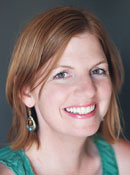 |
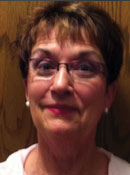 |
Confused about how to incorporate universal PBIS practices into your current counseling program? This preconference sectional is designed for counselors and other practitioners currently engaged in the implementation of PBIS. Through this dynamic presentation, participants will spend time with others engaged in PBIS implementation; determine strategies for moving their schools and teams forward and leave with support and information to continue making our schools positive places for all students. Concrete examples of schools that have been successful in PBIS implementation will be shared.
Participants are encouraged to bring their PBIS ideas and materials (e.g. Cool Tools, acknowledgment ideas, school wide practices – electronic or paper copies). We plan on engaging in conversations and sharing PBIS best practices. Time will be devoted to specific discussions surrounding: Universal systems (e.g., Cool Tools, Acknowledgement Systems, and Motivating the PBIS team), using multiple forms of data to assess programs (e.g., office discipline referrals, school climate perception data) and dealing with the complexities of PBIS implementation (e.g. examining culturally relevant practices and how to move beyond the universal supports). Determination of discussion topics will be flexible and based on the needs of participants. The goal is that participants leave with a renewed sense of purpose and a wide array of resources to assist in their PBIS implementation.
Evening Workshops
February 19, 2013
7:00 – 9:30 pm
Richard Boardman, M.S. Ed., Practitioner and Creator, Family Happenings and Coping & Decisions Games, Co-Founder, Kids In Progress, Incorporated, Family Mediator, TRY MEDIATION, INCORPORATED, Adjunct Faculty, University of Wisconsin – Stout, Chippewa Falls, WI
Tria (Boardman) Wedge, B.A. Psychology, President and Secretary, Kids In Progress: Counseling Games, Incorporated, Iron Mountain, Michigan
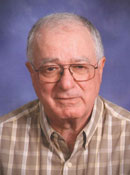 |
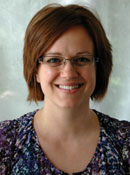 |
“Counseling Therapy Games – Hands On” (Pre-K – Gr. 8)
The Family Happenings and Coping & Decisions games have been used as counseling-therapy tools with children and families since their creation in the 1980’s. Family Happenings was referenced in the January 1988 Newsweek article as a very effective board game for working with children of alcoholics. Anyone who has used either of the games has realized their effectiveness in helping children to deal with family and social situations.
The creator of the games, Mr. Rich Boardman, will be leading participants in a “hands-on workshop” to introduce you to the games and help develop some additional strategies for more effective use of the games. Those in attendance will actually play the games and have discussion on different ways the games have been used with individual children and in a group setting. Both games are currently being re-released with Kids In Progress: Counseling Games, Incorporated.
As co-owner of the company, Tria (Boardman) Wedge will be present to address some of the newly added cards. The games have a few modifications and yet remain the powerful counseling-therapy tools that everyone has used over the past 30 years. Come spend time with us as we play the games, talk and learn more about the use of these counseling games.
The workshop agenda will call for the total time to be split between the two games. The games will be introduced through demonstration followed by playing the games with others that are present. Discussion of different strategies will occur among leaders and participants in response to usage of the games. Everyone is welcome to attend. Both games are used with children six to adult (primarily 5-14). They are appropriate in a one-to-one setting and small group. This workshop is appropriate regardless of familiarity with one or both games.
You will learn effective use of the games as we “take time to play them and discuss how to use them more effectively”.
February 19, 2013 7:00 – 9:30 pm
Pat Ann St. Germain, MA, LPC, Clinic Owner, Director, Therapist and Founder, Healing Hearts Family Counseling Center, LLC, Sun Prairie, WI
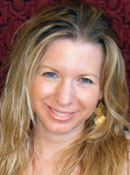 |
“An Advanced Understanding of How to Use Sensory Strategies During Emotionally Challenging Times” (Pre-K – Gr. 8)Schools increasingly face unsafe behaviors and safety concerns due to emotional issues. Often teachers feel ill-equipped to handle the severity of these cases. This presents safety problems for staff, other children, and usurps a child’s education. As a result of her work with children with attachment issues, Pat Ann St Germain learned how to use sensory strategies to decrease aggression and emotional outbursts. She started implementing these treatments within the school system to help support her clients. Furthermore by exploring the sensory system, it guided a deeper understanding of ways to access emotions for all children.
Last year Pat Ann was able to present a quick overview regarding the use of sensory strategies during emotionally challenging times. This year attendees will walk away with an in-depth understanding of the sensory system and how the sensory system impacts and can impede emotional stability, relationships, and learning. Video clips will show counselors how the sensory strategies can be used to access emotional issues. In addition to the typical fidgets, counselors need varying sensory tools. Attendees will learn specific sensory tools that must be in any counselor’s tool box to enhance, support, and better engage the student while providing emotional stability. Information learned in this workshop can also be translated to the classroom to support stability and learning.
Due to the success of sensory strategies, Pat Ann St Germain’s clinic entered into a collaborative effort with Children’s Therapy Network to explore the connection of attachment, trauma and sensory issues. As a result of their efforts, they have been able to address attachment, trauma, and emotional regulation in an integrative way that not only uses cognitive based treatments, but also sensory-motor based experiences and strategies. By giving the family (and schools) foundational, sensory and motor strategies, while at the same time addressing trauma and loss issues, the clients can access emotions with stability and decrease the time in treatment. This collaborative effort has quickly become the most advanced sensory-based psychological treatment in the United States.
February 19, 2013
7:00 – 9:30 pm
Debra Minsky-Kelly, LCSW, Psychotherapist, Performance Enhancement Health Services, SC, Franklin, WI
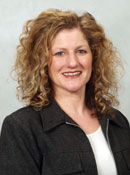 |
“Ethical Practice with the Changing American Family” (Pre-K – PS)Mental Health professionals have a long-established history of thinking through ethical issues related to the clients we serve. Various ethical frameworks will be reviewed in this presentation, and professionals will discuss processes for evaluating ethical dilemmas. Long-standing ethical concepts will be examined through the lens of modern dilemmas facing families. For example, one of the foundational values of our profession has been the respect for individual autonomy and advocating on behalf of our clients for their right to express this in their relationships. This workshop will closely examine ways in which our focus on individuality and autonomy may undermine families’ need to seek connectedness and support in their relationships.
Modern technology has brought many conveniences to our lives. E-mail, texting and social networking have become primary modes of communication. As experts in healthy communication patterns, have we critically examined how these modes of communication impact relationships in the families we serve? Are today’s families more or less connected than past generations? With the children we serve relying so heavily on electronic communication, how are we preparing them for developing relationship and communication skills necessary for future family life and career development? The effects of video games and other electronic influences on children’s learning and development will also be examined.
Along with technological changes to our culture, family structure has undergone significant transformation in the past fifty years. Children’s lives are significantly affected by parental separation, divorce and family blending, in spite of the fact that many of these changes may be viewed as normative. Here again, we return to questions about our profession’s historic role in promoting autonomy and self-actualization. Has this been a contributing factor to a culture that is less committed to working together to collaboratively solve problems toward a goal of family and community stability? How do the community, school and mental health providers respond to the changing makeup of the family and how these changes impact the children we serve? We will discuss appropriateness of existing resources and new directions for supporting children experiencing significant family change.
This workshop will provide participants opportunities to think about and discuss many of these issues with their peers. Ideas will be generated to help us re-think some of our long-held principles. We will be brainstorming new ways to approach both education and our intervention with families, giving consideration to our rapidly changing culture. Participants will work together to develop concrete ideas for challenging their communities to become more effective in supporting the positive growth and development of children and families.
February 19, 2013
7:00 – 9:30 pm
Sharon Hansen, NBCT School Counselor, Middle School Counselor, Berlin Area School District, Berlin, WI
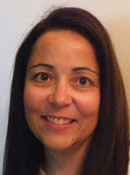 |
“IMPROV”e Your Life” (Pre-K – Post-Secondary)“Oh man, I’m tired. I really don’t know if I want to go to an evening preconference. I just spent all day learning how to better counsel my students and my brain is fried.” If this is what you’re thinking, well think again. You DO want to attend this evening preconference. It is all about YOU. If you’ve ever felt worn out and used up, you are not alone. All of us from time to time need to revitalize! If we don’t recharge our batteries, we cannot be of any use to our students.
During this two and a half hour workshop, you will learn tons of improvisational games and activities that will help to recharge those batteries. You will giggle, laugh, and chortle your way to improved energy, vigor and health. Laughter IS the best medicine and it is much more fun if it is shared with others. An added benefit is that you will learn how to use these activities and games with your students to help break the ice and help you all to relax and build rapport. The activities you learn in this workshop can be used individually, in small groups, even in large classroom counseling lessons. All it takes is a little creativity and imagination to make a few small adjustments. Before you know it, you and your students will be begging for more.
The benefits of improvisation included: increased confidence, improved public speaking skills, enhanced acting abilities, gained comfort in social settings, refined brainstorming abilities, improved listening and observations kills, enhanced creative-thinking abilities, improved decision-making skills, team development skills and instant stardom and fame! Just kidding on that last point. But you will become a star to your students if you make their interactions with you fun and enjoyable, as well as informative. They and you will be learning while having fun, and isn’t that the goal of a good education?
Sharon Hansen was a professional comedienne for six years with ComedySport. It was with this group that she learned the basics of improvisation and the benefits of using it with students. She has taught improvisational games to people from elementary school through adulthood.
Make plans now to attend this evening preconference. Even though you think you might be worn out, you may find yourself more energized when you leave than when you came. Wear comfortable clothes and shoes. Come with a relaxed and open attitude and leave refreshed, renewed, recharged and “Improv”ed!


